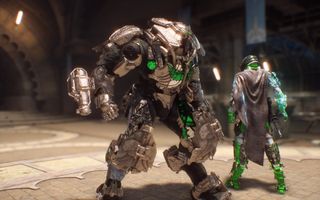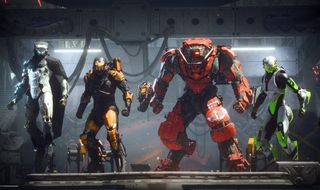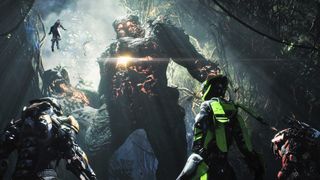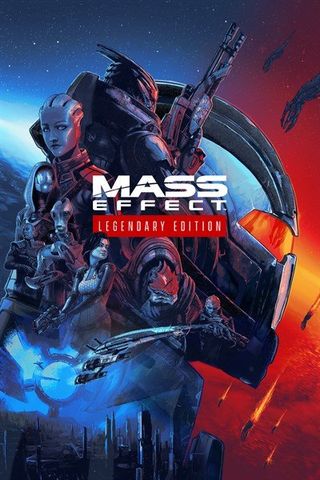RIP Anthem: Incredible potential that was never reached
I hoped that Anthem would grow into an amazing game. Sadly, that didn't happen.

When I reviewed Anthem two years ago, I fell in love with the game's core combat mechanics, world design, and overall visual presentation. However, the egregious issues with the game's loot systems, lackluster endgame, and bland mission structure made it a title that I couldn't recommend at launch. I closed my review feeling hopeful about Anthem, though — after all, many games launch in a rough state these days, and many of those games end up bouncing back stronger than most ever imagined they would.
Unfortunately, this hasn't happened in Anthem's case, and it looks like it never will either. It has officially been announced that "Anthem Next," the full game-wide overhaul that aimed to fix the issues players had with Anthem's core systems, has been scrapped. BioWare studio director Christian Dailey cited resource demands and the strenuous impact of COVID-19 as the primary reasons behind why Anthem Next will never see the light of day. Moving forward, BioWare plans to "laser focus" on Mass Effect and Dragon Age 4 instead.
It's sad to see the ambitious looter shooter fade away, mostly because while it's true that Anthem has some deep issues, I believe that the game's potential was sky-high. Here's a look at what I think Anthem did right.
Living the Iron Man fantasy

By far, the thing I loved most about Anthem was how it felt to control the "javelin" suits — extraordinary exoskeletons that cover your character head-to-toe with thick armor and give you advanced mobility thanks to their built-in thruster jets. Everything about using the javelins were an absolute joy; from the high-pitched whines of the suit's joints moving with you as you sprinted forward to the sudden violent jolt of momentum you'd feel every time your thursters roared to life. It's clear that a lot of effort was put into making you feel like you were controlling something right out of Tony Stark's laboratory.
What I really appreciated, though, is how each class of javelin felt uniquely different. The Colossus javelin, with its larger frame and heavier chassis, created a thunderous boom every time it hit the ground. Flight with the long-ranged Storm javelin captured the sensation of floating in place perfectly thanks to the constant upward propulsion. The Interceptor javelin's zippy, snappy animations and explosive bursts of speed made you feel like a true robo-assassin. FInally, the Ranger javelin combined elements of how all the other javelins felt, and the result is the ultimate jack-of-all-trades.
Regardless of what other issues a game has, I believe that if it feels amazing to play at its core, it can eventually grow to become great as other aspects of the game's design are improved. It's why I believe Bungie's Destiny and its sequel, Destiny 2, ended up being so successful, and it's also why I was so hopeful for Anthem.
Emphasizing team synergy

Another awesome thing about Anthem was its suprisingly complex and effective combat loop. Specifically, I enjoyed the abilities (such as artillery strikes or bursts of freezing energy) you could use every few seconds between bursts of gunfire. Aside from making you feel cool and powerful, these abilities also served to encourage working with your teammates with the "primer and detonator" mechanic.
Get the Windows Central Newsletter
All the latest news, reviews, and guides for Windows and Xbox diehards.
For example, let's say you freeze, poison, or burn an enemy. Not only will this reduce the foe's combat effectiveness by immobilizing them or doing some damage over time, but it will also "prime" them. Teammates can then use a "detonation" ability, such as a missile or a blade strike, to detonate the primed enemy and do a huge damage spike. And since all of the javelin classes in Anthem have both primer and detonator abilities, you and your teammates can chain these combos several times throughout combat encounters.
This system was poorly explained in-game, but once players figured it out, it made the combat even more fun than it already was. A big issue with many looter shooters is how it often feels like you have to fight with your teammates to be effective with your gear and abilities (Destiny 2 players trying to do Strike bounties will know exactly what I mean), but Anthem solved that problem by making a huge part of the combat experience tied to working with your allies directly. I love this system, and I hope it goes on to inspire future games.
A world full of potential

Lastly, I'm a huge fan of Anthem's world design. While the game's story left a lot to be desired, the setting was fascinating. The game's planet, Coda, was teeming with flora and fauna that look vaguely similar to things you'd see on Earth, but they're strange and different enough to make them feel distinctly otherworldly. There were also enemies such as the insectoid Scar scavengers or the gigantic Ash Giants that looked completely alien, making them feel more threatening.
At the center of it all is the mysterious Anthem of Creation, an energy source that's said to be the essence of creation itself. What the Anthem is capable of and how factions attempt to interact with it is what drives both the game's core narrative as well as its lore.
Despite how poor the vanilla story was, the foundation of what's there is interesting, and I really wish BioWare could have gotten a second chance to play around in the sandbox it created. Coda is a beautiful, intriguing place, and it's unfortunate that we'll never get to experience any more stories beneath its skyscraper-sized trees and mysterious alien ruins.
Your thoughts
What do you think of Anthem? Do you agree with me about what I think were its best elements? Let me know. Also, if you're looking for a new looter shooter to play, check out our roundup of the best looter shooters for Xbox.
It's undeniably sad to see Anthem let go, but thankfully, BioWare fans at least have Mass Effect: Legendary Edition to look forward to. It's planned to release on May 14, 2021 for $60 on Xbox Series X, Xbox Series S, Xbox One, PlayStation 4 and 5, and PCs.

Commander Shepard's story
With Mass Effect: Legendary Edition, you can experience all three classic games like never before. Improved graphics, gameplay and every bit of DLC ensure this is a remaster worth grabbing.
Xbox Series X/S
Main
- Xbox Series X: Everything we know
- Best games coming to Xbox Series X/S
- List of Xbox Series X specs
- What is the Xbox Series X release date?
- How much does Xbox Series X cost?
- Why you can't preorder Xbox Series X yet
- Best Xbox Series X Headsets
Brendan Lowry is a Windows Central writer and Oakland University graduate with a burning passion for video games, of which he's been an avid fan since childhood. You'll find him doing reviews, editorials, and general coverage on everything Xbox and PC. Follow him on Twitter.

